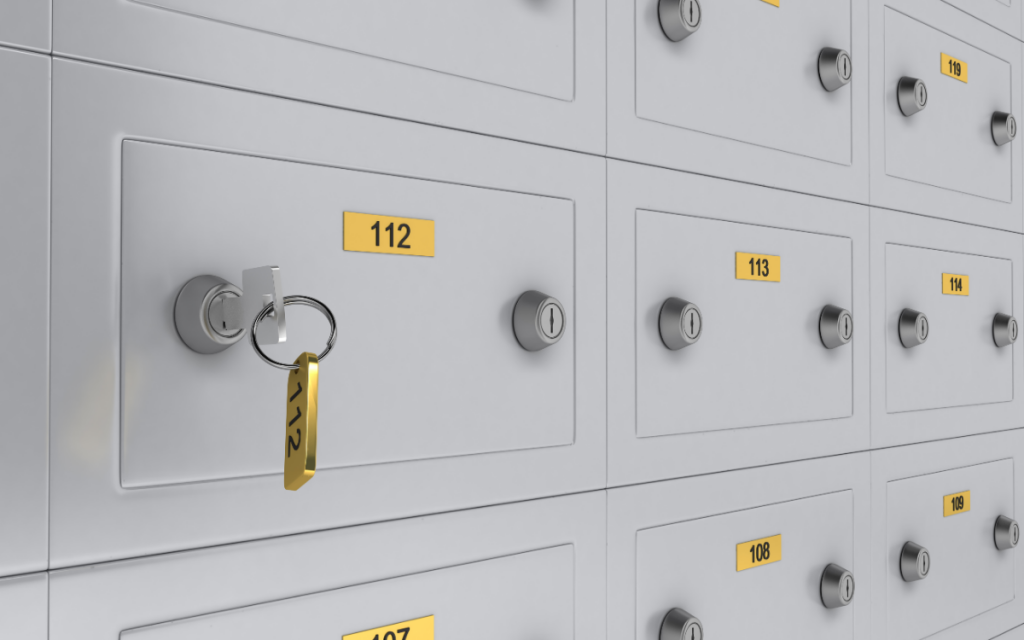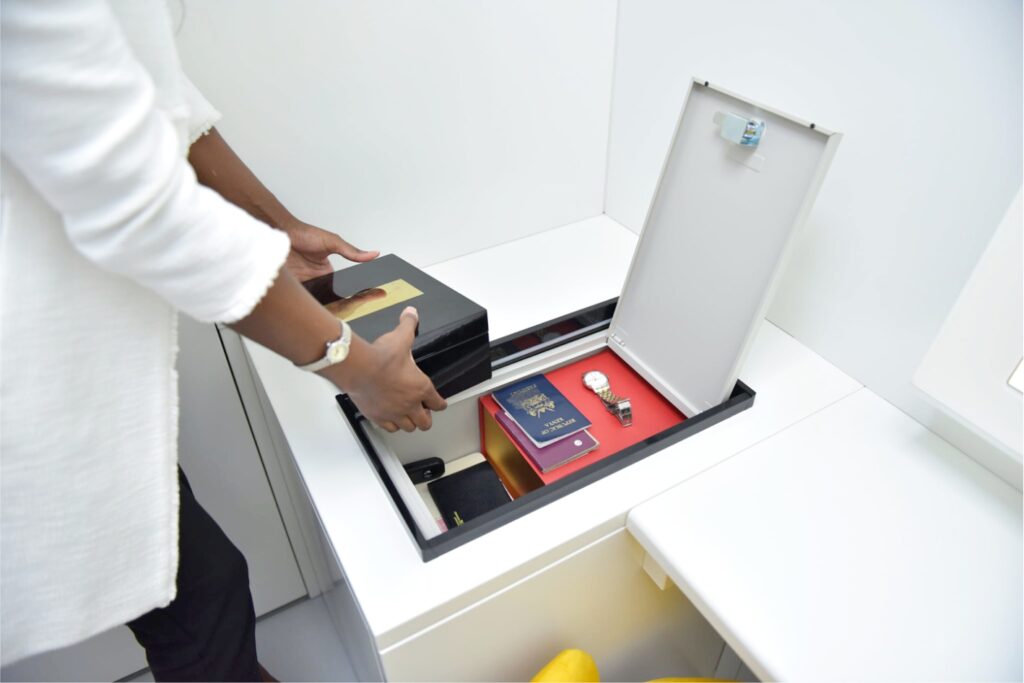
A home safe or a safe deposit box at a financial institution are your two main options for safeguarding your most valuable belongings. Because each has pros and cons, the choice will largely depend on your security requirements, access needs, and the kinds of things you want to keep. To assist you in choosing the best security option, we will compare home safes with safe deposit boxes in this post.
What Is a Safe Deposit Box?
A Safe Deposit Box Solutions is a secure, locked container stored inside a bank or private vault facility. Customers rent these boxes to keep valuables such as important documents, jewelry, and collectibles safe from theft, fire, or natural disasters.
Advantages of Safe Deposit Boxes
- High-Level Security: Stored in bank vaults with top-tier security systems and surveillance.
- Protection Against Natural Disasters: Shields valuables from fires, floods, and other catastrophes.
- Limited Access Reduces Theft Risk: Since access is restricted, the risk of unauthorized entry is minimal.
- Affordable Rental Costs: Typically costs between $20 to $200 per year, depending on the size and location.
You can also read: The Rise of AI-Powered Safe Deposit Boxes: Convenience Meets High Security
Disadvantages of Safe Deposit Boxes
- Limited Access: Available only during bank hours, which can be inconvenient.
- Not Insured by Banks: The contents are not covered by FDIC insurance, requiring separate insurance.
- Restricted Storage Items: Some items, such as cash or illegal goods, are prohibited.
What Is a Home Safe?
A home safe is a secure, lockable storage unit installed in your home. These safes come in various sizes and security levels, providing on-demand access to valuable items.
Advantages of Home Safes
- 24/7 Access: You can retrieve or store valuables anytime without restrictions.
- Customizable Protection: Available in fireproof, waterproof, and burglary-resistant models.
- Stores a Wide Range of Items: Allows storage of cash, firearms, important documents, and more.
- No Rental Fees: A one-time purchase provides long-term security.
Disadvantages of Home Safes
- Vulnerable to Theft: A determined burglar may be able to break into or steal the safe.
- Limited Fire and Flood Protection: Not all home safes are designed to withstand extreme conditions.
- Potential for Forgotten Codes or Keys: Losing access due to misplaced keys or forgotten combinations can be an issue.
Safe Deposit Boxes vs. Home Safes: Which One Should You Choose?
Best for Security
- Safe deposit boxes provide a higher level of security since they are stored in bank vaults.
- Home safes can be secure but may not offer the same protection against professional burglars.
Best for Accessibility
- Home safes win in this category as they provide 24/7 access.
- Safe deposit boxes are only accessible during bank operating hours.
Best for Protection Against Natural Disasters
- Safe deposit boxes are well-protected from fires and floods due to their location in secure vaults.
- Home safes require additional fireproof and waterproof features to offer similar protection.
Best for Storing Certain Items
- Safe deposit boxes are ideal for documents, rare collectibles, and heirlooms.
- Home safes are better suited for cash, firearms, and frequent access items.
Conclusion
The right choice depends on your specific needs:
- Choose a safe deposit box if security is your top priority and you don’t need frequent access to items.
- opt for a home safe if you need 24/7 access to valuables and prefer a one-time investment over recurring rental fees.
For the best protection, many people use both options—keeping frequently accessed items in a home safe and storing irreplaceable valuables in a bank’s safe deposit box. By understanding the strengths and weaknesses of each security solution, you can make an informed decision that best suits your needs and lifestyle.
FAQs
Banks discourage storing cash in safe deposit boxes since the contents are not insured. Keeping money in a home safe or a bank account is better.
Many safes offer a backup key or digital recovery options. If locked out, you may need professional assistance to regain access
Not all home safes are entirely fireproof. Look for UL-rated fireproof safes that specify the duration and temperature they can withstand.
Family members may need legal authorization or a court order to access the contents unless they are co-signers on the box.
Yes, getting insurance for valuable items stored in either option is advisable, as home safes can be stolen, and bank boxes are not insured by default.
Social Share
-
Facebook
-
Twitter
-
Pinterest
-
Linkedin

